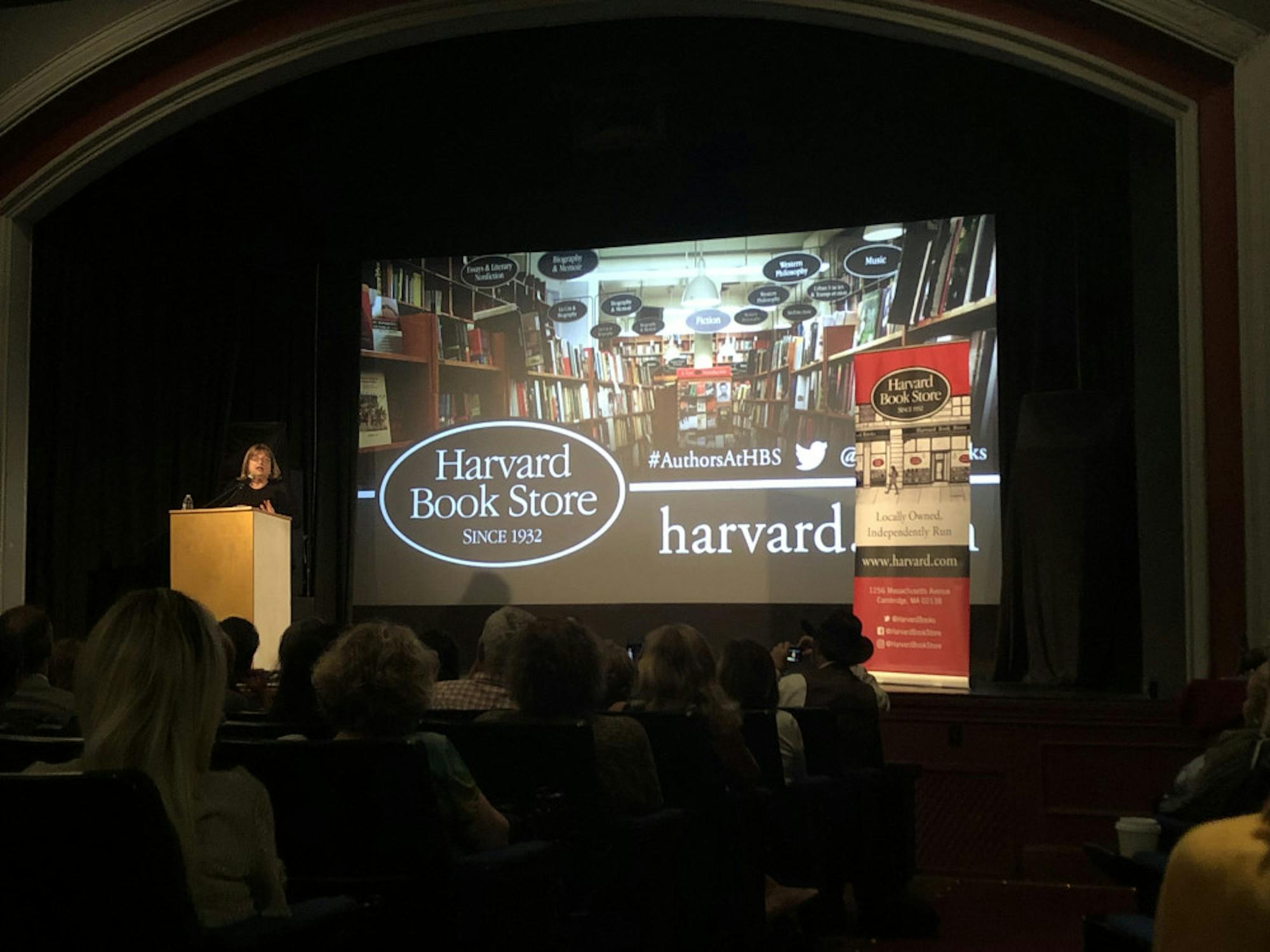Alice Hoffman added another title to her prolific body of work on Tuesday with the debut of her novel“The World That We Knew" (2019).On the evening of its release, the best-selling author of over 30 works of fiction appeared at the Brattle Theatre for a brief reading and shared insights into the process that led to the creation of “The World That We Knew.”
“The World That We Knew” is set in Berlin in 1941. It follows the lives of three women who become intertwined in order to survive the dangers of the Nazi regime.Lea is a 12-year-old girl who has been sent away from her family for protection. Ettie, a rabbi’s daughter, creates a mythical Jewish creature, a unique female golem named Ava, to protect Lea. Together, the three women use their strength to avoid persecution.
At Tuesday's event, Hoffman fans excitedly snacked on popcorn as they waited for her to take the stage.
As soon as she did, her comfort at the podium was palpable. At home in the Boston area, Hoffman allowed us all into her process. After President Trump was elected in 2016, she explained, she looked to find a way through her disenchantment with her writing. She found herself asking how people survive dark times because of her belief that we are in a dark time now.
The story was brought to her attention by a random encounter with a woman after a talk in Palm Beach, Fla. According to Hoffman, the woman bluntly came up to her and immediately told her that she must tell her story. As a hidden child during World War II, this random fan of Hoffman’s did not want her life’s story to die with her. This story sparked something inside of Hoffman, and began her quest to learn the stories of hidden children and to tell a fictional account of one herself.
As Hoffman's research soon revealed, many Jewish children were hidden either in secret locations like convents or put in foster families (usually Catholic) during World War II. In the novel, Hoffman incorporates the stories of these children into Lea's character, who is separated from her mother and grandmother and sent to a convent.
This woman, whose name Hoffman lamented because she could not remember, left the story of her past at Hoffman’s feet, and Hoffman could not help but pick it up and run with it. Through her research, talking to surviving hidden children and going to Europe herself, Hoffman gained insight into what life was like for these children and illuminates it in “The World That We Knew.”
Though she has no means of contacting the woman she met in Palm Beach, she commented that she is grateful for that fated encounter.
She detailed how she used magical realism to attempt to conquer a dark chapter of history and inspire hope for the present. With this style of fiction, which adds supernatural elements to an otherwise realistic world, Hoffmanrelated how she utilizes the format of fairy tales in order to find her way through the stories she writes.
This novel also has its ties to the current political landscape, as Hoffman explained at the talk.Lea's separation from her family felt connected to the ongoing separation of families at the southern border of the U.S.
Hoffman’s books often include themes of love, loss and survival, and “The World That We Knew” is no different. Hoffman herself noted the book's engagement with one of her central beliefs: “When you lose your mother, you lose the world. When you lose your child, you lose your life,” she explained.
Hoffman also revealed that she did not know the ending or where the characters would take her when she began writing. Instead, she reflected, wrote the story and let the plot and her characters unfold organically into their present form. She came to view the novel as her attempt to, as she described, “turn her pain into something beautiful.”
In her comfort with the crowd, the book's deep personal implications and the effect that the process of writing it had on Hoffman shone through. Finding the writing of “The World That We Knew” to be a therapeutic and untimely experience, she explained that she wishes the novel will do the same for its readers.
Alice Hoffman aims to create beauty with new novel

Alice Hoffman talks about her new book 'The World That We Knew' (2019) in the Harvard Book Store on Sept. 25.





